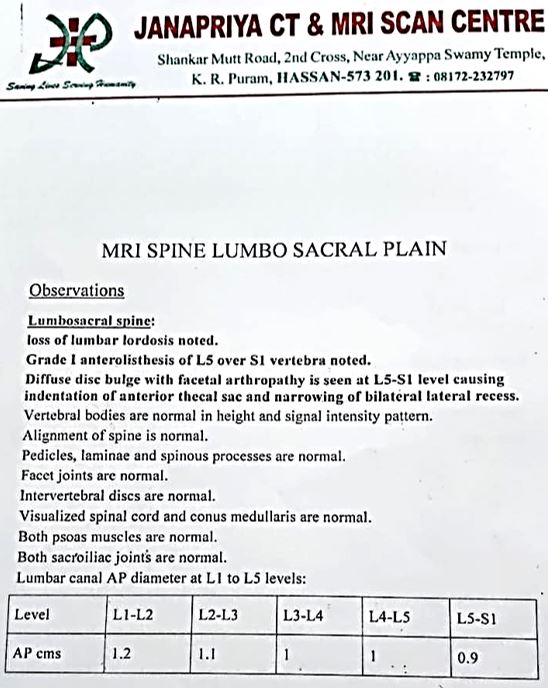An Ayurvedic approach to Lumbar Radiculopathy (Gridhrasi) with special reference to Ksheera Vaithara Basti - A Case Report
DOI:
https://doi.org/10.21760/jaims.10.5.48Keywords:
Gridhrasi, Lumbar radiculopathy, Basti, Ksheera Vaithrana BastiAbstract
Lumbar radiculopathy is a neurological condition characterized by pain radiating along the path of sciatica nerve. It has significant impact on quality of life associated with chronic pain and disability. Early recognition and appropriate management are crucial for reducing morbidity and improving functional outcomes. In Ayurvedic literature, Gridhrasi resembles to the clinical features of lumbar radiculopathy. In this study, the patient presented with low back pain radiating to left lower limb, heaviness, and numbness, unable stand/walk due to pain. Magnetic resonance imaging of lumbosacral spine shown loss of lumbar lordosis, grade I anterolisthesis of L5 over S1 vertebra noted, diffuse disc bulge with facetal arthropathy is seen at L5-S1 level causing indentation of anterior thecal sac. The disease was diagnosed as Ghridhrasi (Left) with Kaphavruta stage. Treated with Ksheera Vaithara Basti (Kaala Basti) and Shamana Oushadhis for a period of 51 days (in-patient 21 days and out-patient 30 days). However, there was a significant improvement in pain relief and patient was able to walk without support in a span of twenty-one days. The treatment protocol followed for Gridhrasi with special reference to Ksheera Vaitharana Basti and Shamana medications has given a significant relief and thereby improved the quality of life.
Downloads
References
Chou R, editor. Sciatica: Overview of Management. Bethesda (MD): National Center for Biotechnology Information (US); 2011 [cited 2025 Apr 12]. (Bookshelf).
Acharya YT, editor. Charaka Samhita with Ayurveda Dipika commentary of Chakrapani Datta. Reprint ed. Varanasi (India): Chaukambha Orientalia; 2014. Chikitsa Sthana 28/56–7. p. 619.
Saxena N. Vangasena Samhita (Chikitsasara Samgraha) of Vangasena. Vol. II. 2nd ed. Varanasi: Chowkhamba Sanskrit Series Office; 2014. Basti–Karmadhikara. p. 1165.
Fairbank JC, Pynsent PB. The Oswestry Disability Index. Spine (Phila Pa 1976). 2000 Nov 15;25(22):2940–53.
Krishnan KV, Pillai SG. Sahasrayogam. Alappuzha: Vidyarambham Publishers; 2006. p. 135.
Gobind Das Sen. Ratnavali. Ambikadatta Shastri A, editor. Vatavyadhi Adhikar 26, verse 98–101. Varanasi: Chaukhamba Sanskrit Sansthana; 1999.
Dadoriya P, Dey YN, Sharma D, Yadav M, Wanjari MM, Gaidhani SN, Subhose V. In-vitro anti-inflammatory and antioxidant activities of an Ayurvedic formulation – Trayodashang Guggulu. J Herb Med. 2020;23:100366. doi: 10.1016/j.hermed.2020.100366.
Gobind Das Sen. Ratnavali. Ambikadatta Shastri A, editor. Vatavyadhi Adhikar 26, verse 145–148. Varanasi: Chaukhamba Sanskrit Sansthana; 1999.
Sruthi CV, Sindhu A. A comparison of the antioxidant property of five Ayurvedic formulations commonly used in the management of vata vyadhis. J Ayurveda Integr Med. 2012 Jan;3(1):29–32. doi: 10.4103/0975-9476.93945. PMID: 22529677; PMCID: PMC3326791.















